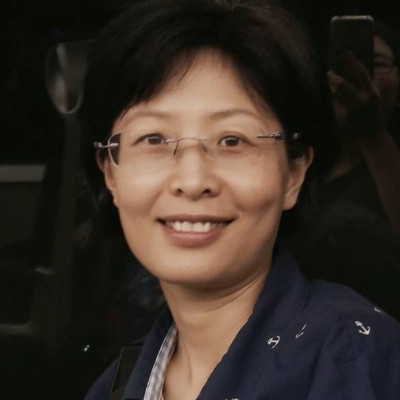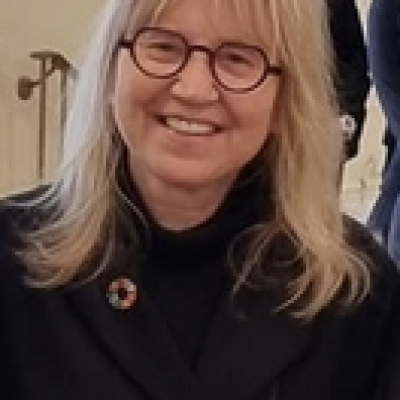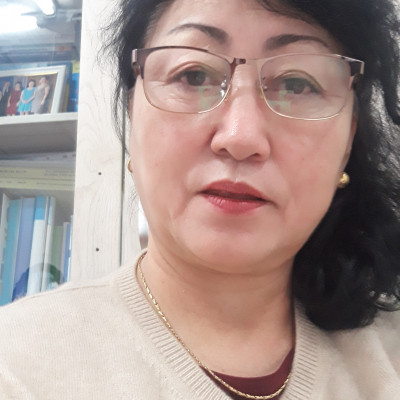Sessions / Research Paper (25 mins)
Exploring Flipped Learning Through Preservice Teachers’ Experiences and Perceptions #3097
This qualitative study explored preservice teachers’ perceptions of flipped learning in the post COVID-19 era. Thirty EFL preservice teachers participated in survey research; fifteen of them joined the interviews in this study. For data analysis, survey data were analyzed along with descriptive statistics (e.g., means, standard deviation, and percentage). Then, thematic analysis was used to analyze the interview data. Thematic analysis is a useful way in exploring recurring themes and patterns in qualitative research. The findings revealed that the preservice teachers deeply considered flipped learning useful for self-regulation and autonomy. They also discussed the advantages and challenges of flipped learning. In terms of online sessions for previewing, however, they perceived the need for instant feedback from their professor and interactions with their colleagues. Lastly, the preservice teachers argued that the online sessions before the class should be closely connected to their learning in class. Pedagogical implications are also discussed in this study.
An Investigation into the Promotion of Cultural Awareness in Locally Produced English Learning Materials in Thailand #3117
This research evaluated the extent to which two series of in-house English textbooks in Thailand, New Weaving It Together and Moving Up Critical Reading, enhance cultural awareness among different learners. A three-level model of cultural awareness established by Baker (2011) was adopted as a framework to analyze the content of the selected materials. We descriptively analyzed 120 reading passages and 150 reading exercises in total. The agreement between the two raters was almost perfect. Overall, the content of the New Weaving It Together series has more significant potential to increase cultural awareness at basic and advanced levels as opposed to that of the Moving Up Critical Reading series. We suggested that reading passages and exercises in locally-produced ELT materials should integrate content focusing on different traditional or cultural aspects and knowledge across disciplines or subjects. These include stories about science, technology, and geography, enhancing intercultural sensitivity and awareness.
CALL After COVID: Asynchronous E-Learning in Higher Education #2900
Due to both a falling level of English proficiency in Japan as well as the COVID-19 pandemic, asynchronous online English as a Foreign Language (EFL) learning has received renewed research interest in Higher Education (HE). From researching the advancements in EFL e-learning, the author argues that whenever the pandemic abates, asynchronous platforms should be continued to be used in conjunction with traditional HE EFL classroom teaching.
Since learning ought to focus on increased interactions between speakers, as per social constructivist norms, educators should increase the use of tools that promote learning inside and outside the classroom.
Therefore the research focuses particularly on exploring the strengths of Mobile-Assisted Language Learning (MALL), as it increases agency and interactions through location-independent learning, autonomy, self-efficacy, and collaborative learning. The e-learning platform Flipgrid shows promise of encapsulating these strengths and forms a basis of a discussion of the pros and cons of asynchronous e-learning, as well as an implementation proposal in a typical HE EFL scenario.
The Lived Experiences of Non-native EFL Teachers in Vietnam: A Phenomenological Inquiry #2904
The increasing demand for English as a Foreign Language (EFL) instructors throughout Asia, particularly in Vietnam, has resulted in a large diaspora of both native and non-native teachers to assist students in improving their English language proficiency. The objective of the research was to conduct an inquiry into the personal experiences of non-native speakers teaching EFL in Vietnam and the essence attributed to it. This study utilized a comprehensive semi-structured interview with 12 non-native English-speaking teacher-participants from Philippines, Vietnam, Netherlands, Venezuela, Brazil, Spain, India, Ghana, Russia, France, Ukraine, and Poland. The study revealed major themes namely: Professional Rewards, Personal growth and contentment, Promotions and Career Opportunities, Professional Predicaments, and Personal Drive. The benefits of non-native English-speaking instructor in Vietnam were all emphasized, including the strong demand for EFL Jobs, simpler hiring processing, and many advancement possibilities. There were professional issues on discrimination and biases from employers aside from the racism experienced by students. Despite the challenges encountered, there were relevant pieces of advice shared to cope with the challenges such as getting qualified, adapting to culture, and possessing passion and optimism towards teaching as non-native teaching in Vietnam.
Effects of VR and Online Public Speaking Lessons on Students’ Speaking Skills #2667
Benefits of VR for English education such as increasing engagement (Hu-Au & Lee, 2017), reducing affective filter (Schwienhorst, 2020) and public speaking anxiety (Godefridi et al., 2021), and raising students’ motivation (Tai, Chen, & Todd, 2020) are reported. Thirteen students in a two-week online study abroad program offered by a university in the U.S. to improve public speaking and acquire ICT knowledge took three VR lessons before the program. In this presentation, I will present the results of pre-and post-TOEIC speaking tests before the VR lessons and the public speaking lessons in the program, an analysis of pre-and post-questionnaires developed with reference to Can-do descriptors of CEFR Companion Volume (Council of Europe, 2020), and an analysis of students’ journals about the VR and the public speaking lessons. The possibility of integrating VR lessons prior to online or onsite study abroad programs will also be discussed.
Emotional Presence in EFL Students’ Virtual Study-Abroad Experiences Under the Pandemic #2671
The long-term impact of the global pandemic on international education makes it imperative to better understand international students’ learning experiences in virtual learning contexts. Despite the importance of emotion in online learning (Torres & Evans, 2020), it has received scant attention in the studies on emergency remote teaching (ERT) experiences. Informed by an integrated model of Community of Inquiry (CoI) and emotional presence (Majeski et al., 2018), this study investigated the roles of emotional presence in ERT and the influential factors by interviewing 12 English-as-a-foreign-language (EFL) students who virtually pursued their graduate programs at a Canadian university during the pandemic. Findings of the research show that instructors’ and peers’ emotional perception and understanding played a vital role in shaping students’ learning experiences. Factors such as instructors’ approachability, ways of communication and course design had significant impacts on emotional presence in ERT. Implications for providing effective emotional support are also discussed.
How Different Sequences of Engagement in Cooperative Learning Affect Students' Motivation #2679
This study investigated the effects of different sequential arrangements of informal and formal cooperative learning (CL) on students' motivation, basic psychological needs, and perception of the value of CL in university classrooms. Students in two university EFL classes engaged in both types of CL in a different order. At the end of the study, they were asked to reflect on their CL experiences. Written student comments were collected and analyzed using KH-coder, a text mining system. Results showed that students who participated in formal, then informal CL, seemed to focus more on their lack of English language competence and were less intrinsically motivated than students in the other class. Students who engaged in informal, then formal CL, appeared to build feelings of peer compassion and have higher intrinsic motivation. Findings suggest that teachers should attend to the sequence of engagement when conducting informal and formal CL in university EFL classrooms.
An Introduction to the Usage of Hermeneutics in Cross-cultural Research #2947
Recognised as the theory and practice of interpretation, hermeneutics represents a methodology and philosophical framework paying particular attention to the socio-cultural, linguistic, and historical contexts shaping human experience. Contrary to positivistic interpretations of reality, hermeneutics honours the role of personal history during the negotiation of culture, presenting a versatile research methodology that recognises one’s pre-held beliefs as an inescapable feature of learning. In doing so, hermeneutics seeks not to overcome or eliminate subjectivity but to appreciate the consequences of its limits. Calling on Gadamer, this presentation intends to communicate the value and limitations of this approach, specifically to front-line, cross-cultural research. In discussing the applications of hermeneutics, principles such as effective history, prejudice, provocation, and fusion of horizons, scaffold practical tips, including the role of the post-positivist researcher, ethical and quality control measures, interview procedures, transcription, and the interpretation and analysis of data.
Why Do We Teach? A Case Study of Vietnamese University EFL Teachers #2985
Teachers’ motivation has become a critical issue in the field of education. Understandings of teachers’ motivation for a career choice, and motivation for staying in the profession can be useful for educators, policy makers, and school leaders in finding effective ways to sustain and improve teachers’ motivation. In order to achieve this objective, the current study examined Vietnamese university EFL teachers’ motivation and teachers' basic psychological need satisfaction through the lens of Self-Determination Theory. Data were collected from 104 survey questionnaires and 30 in-depth interviews completed by EFL teachers from 14 universities in Vietnam. Findings suggested that Vietnamese EFL university teachers could be simultaneously intrinsically and extrinsically motivated to become an EFL teacher, and to stay in EFL teaching. However, teachers’ intrinsic motivation was reported higher than the extrinsic motivation. Although teaching is not a well-paid profession in Vietnam, many teachers said that they were committed to teaching because of the intrinsic values of the profession. Moreover, relationships between teachers' intrinsic motivation for EFL teaching and the satisfaction of teachers' basic psychological needs were identified. Findings of the current study suggested that enhancing the satisfaction of teachers' basic psychological needs at work can result in a high level of teachers' intrinsic motivation and commitment to EFL teaching and. This supports the importance of teachers' basic psychological need satisfaction and intrinsic motivation in the quality of EFL teaching as well as teachers' well-being. The study is concluded with practical implications and future research suggestions.
How Monolingual Teachers Can Run a Bilingual/Bicultural Story Time #2992
This study presents how multi-language and culture-focused story time would support English learners develop their dual languages in early childhood education (ECE) settings. Monolingual teachers who are native English speakers at ECE are only using English and American Culture for English learners in their classrooms. Two monolingual teachers and two bilingual teachers participated in conducting a bilingual and bicultural story time while co-selecting books and collaborating with the researcher. In the bilingual story time observation and practices, teachers showed the possibilities to well incorporate home language (e.g. Arabic, Spanish, Korean) with English and how to expose English learners to diverse cultures, which can be seen in their communities. Especially, how young children have been empowered listening and speaking their home languages and cultures at school. This research made teacher raise their awareness of the importance of language-focused education for young children and contribute to teacher education at ECE in Korea.
Second Language Online Teaching in K-12: Challenges and Recommendations #2995
This study examined how teachers of Korean as a second language in the U.S. adapted to online teaching during the pandemic. At a Korean Heritage language school located in the US, qualitative data including survey (n=11) and follow-up interview (n=8) of teachers were collected and analyzed. Teachers shared their own perceptions and practice on using target language only (Korean) or using English in their classrooms. In the preliminary results, this study shows the dynamics of online teaching depending on different age group and the proficiency level of Korean. Especially, depending on the grade level of students, teachers need to use different strategies depending on their motivation and interests in learning Korean. With teaching experiences, teachers showed different use of languages. For older students, using English was beneficial while parents’ support was helpful for younger students. Findings indicate that learner variables such as age, proficiency, and language use affected teachers' decisions.
A Study on Students' Difficulties in Learning Latin-Rooted Vocabulary #2997
The study aims to find out English for Nursing course students' difficulties in learning Latin-Rooted vocabulary at a college in Ho Chi Minh City. A survey is conducted to find out what difficulties in learning Latin-Rooted vocabulary in ESP and how could they handle those difficulties. The data collected from 30 students show their concerns upon the lexicon understanding, the usage of those vocabulary in the context and mostly how to memorize the words. Data collecting instruments include think-aloud protocol and questionnaire. The follow-up interviews and the thematic analysis later stood the findings on their difficulties in Latin-rooted vocabulary learning. Mind-mapping and morphological rules are mostly applied to solves their problems so far as pedagogical implication in the case studied.
Teach Business English Responsibly: Case Studies for Social Responsibility and Sustainable Development #2746
This presentation reports on a newly implemented Business English curriculum utilizing business case studies focused on corporate social responsibility (CSR) and the U.N.’s Sustainable Development Goals (SDGs). Seven intact “Career English” university classes participated in a semester-long course following the new curriculum. Preliminary findings show that the course increased student motivation, interest, and engagement, as well as practical knowledge of business English and the ability to communicate in business settings. Grounded in task-based language teaching, case studies require learners to critically analyze real-life problems faced by companies, develop feasible solutions, and suggest courses of action. In the language learning classroom, this method gives participants the opportunity to enhance communication skills, negotiate meaning, learn business discourse and correspondence, and critical thinking. Furthermore, case studies meaningfully integrate content and language learning. For this course, learners were asked to investigate a company’s CSR policies and propose solutions that contribute to the SDGs.
Developing Multilingualism Through Immersion: The Importance of Motivation #3003
How can teachers motivate students to achieve a high level of proficiency in multiple languages? This presentation will describe the experiences of two Korean graduate students who developed multilingualism through language immersion. These students represent a group of seven participants who were systematically interviewed for a study on the role of motivation in achieving multilingualism for a research study by a graduate student.
The presentation will begin by describing the background research on motivation and immersion education, highlighting the work of Zoltán Dörnyei's L2 Motivational Self System. Most of the presentation will focus on the cases of the two Korean graduate students, who will describe how they became trilingual in Korean/Japanese/English and Korean/Spanish/English. They will identify the most important sources of motivation that contributed to their multilingualism, including self-monitoring, content-based instruction, social integration, and developmental factors related to age. The presentation will conclude with a diagram showing the most significant motivating factors, with suggestions for how teachers can use these findings.
Exploring How to Improve Language Skills in a Language for Specific Purposes Course #2748
The importance of courses on languages for specific purposes has gained more attention in foreign language departments. On the one hand, these classes have been shown to provide students with benefits that go beyond learning a foreign language, such as increasing students’ motivation and critical thinking. On the other hand, not only students, but the community as a whole benefit from these classes, as students are better prepared for their work they will have to do later on in a foreign language (for a review, Brown & Lee, 2015). For example, a doctor who has learned English for Medical Professionals can attend both English- and other language-speaking patients. However, not many departments are able to include such classes into their curriculums. Either they lack professionals versed into teaching such courses, they do not have enough time to implement them in an already full curriculum, or they do not have the monetary resources to hire the appropriate instructors (Macedo, 2019). This study explores the possibility of offering the same benefits as those gained through courses on languages for specific purposes when teaching a traditional foreign language class. Specifically, this study explains how a Spanish advanced debate class (proposed to help students reach an advance knowledge of speaking in Spanish) included materials traditionally found in a Spanish for the Science class (e.g., vocabulary activity or texts). Students gained in vocabulary, grammatical structures associated with the field of science and were ready to deliver a very coherent and solid debate on a difficult topic for them. Not only the benefits were found in how they delivered a speech on a topic related to sciences, but also the benefits transferred to their writing skills, when they were asked to write an argumentative text on this same topic. This presentation will also propose ways on how the techniques and materials traditionally found in a language for specific purposes course can be implemented into any foreign language classroom, specifically English as a foreign language.
REFERENCES Brown, H. D., & Lee, H. (2015). Teaching principles. P. Ed Australia. Macedo, D. (2019). Decolonizing foreign language education. The Misteaching of English and Other Colonial Languages. NY: Routledge.
Pedagogy of Compassion and Service Learning #3005
Partner Session (ELTAI)
Education gets its purpose when it nurtures human values of warm-heartedness and compassion. Focussing on transforming an individual from a human being to a state of being human, the research talks about various approaches that teachers adopted to practice pedagogy of compassion which found solace when remote learning came to everyone’s rescue during the stressful circumstances born out of unprecedented times. The research suggests various ways that promoted independent learning and a culture of inclusivity to develop humane qualities in students during the pandemic. It talks about experiences gained by students in developing a mindset for service learning and reaching out to the community. Meeting a goal of bridging compassionate pedagogy and service-learning, the research also talks about tenacity and resilience imbibed by the students consistently while making a worthy connection with all. The research suggests that reflective learning played a vital role in shaping up students as empathetic beings.
Teacher Role in Decreasing Student Anxiety in the Language Learning Environment #2750
Foreign Language Anxiety is known to interfere with the acquisition, retention, and production of the target language. Based on a previous study conducted on language learning anxiety, which investigated anxiety-causing activities as well as student beliefs, it was determined that the teacher plays a key role in helping students mitigate foreign/second language anxiety in the classroom. Therefore, the aim of this study was to investigate student beliefs on the role of the teacher in decreasing feelings of anxiety and determine how teachers can better assist students to overcome these anxieties. The findings revealed that a teacher’s relationship with students is a major component of a student’s academic success and emotional well-being. The study conducted followed the qualitative method of research, with participants consisting of 1st and 2nd Year university English majors, in a communicative course.
Navigating Through the Discipline as Novice Researchers: Citation Practices in Academic Writing #2751
Using citations effectively and incorporating secondary sources in academic writing add credibility to the author and help avoid plagiarism. Selecting and integrating academic material in one’s argument requires careful analysis and evaluation of texts, analytical thinking and critical reading skills, as incorrect practices often lead to violation of academic integrity or false interpretation of the original texts. Students are aware of the importance of citing sources correctly, yet its complexities present numerous challenges. The study investigates first year undergraduate students’ citation practices in an Academic Writing course at an American university in the UAE. Surveys were conducted with 72 students of various nationalities and academic majors taking the course to identify areas where they struggle with citing sources. Findings also reveal that through their experiences they not only appreciate the importance of academic integrity and research but also critical reading analysis and the construction of cogent arguments. However, in order to master the skills of using citations correctly, students require teachers' constant support and reinforcement.
Improve Speaking 50% in One Semester. By Speaking. #2769
This presentation has no theory, only primary sources. It is based on 10 years of Korean university freshmen conversation classes, with approximately 1500 students and 4500 conversation test transcripts. The conclusion is that if teachers will simply step aside and let freshmen speak, their speaking will improve at least 50%. Candidly, it is sinfully easy to improve their speaking ability, because candidly, their speaking ability is so low. All freshmen have had a decade of grammar-based English, and most cannot smoothly tell you what they had for lunch. For most of them, saying two self-composed sentences back-to-back would be a 100% improvement. There is absolutely no grammar, because attention to grammar in university freshmen slows down, inhibits, gums up, reduces speaking ability. This brings up the billion dollar question: Is real-world speaking ability an academic skill? YES. Clear confident speaking ability is the sign of an educated person.
“Did You Say Pragmatics?”: Advancing Instructional Design to Address Negative Transfer #2781
Ample research in the field of pragmatics has confirmed the effectiveness of explicit instruction. However, this body of knowledge has been largely limited to the study of intermediate second language learners. This narrow focus leaves teachers of beginner and advanced students with little guidance when it comes to the instructional design concerning pragmatic skills development in face-threatening scenarios. Based on a 2021 study of negative pragmatic transfer among Japanese university students, this presentation explores how the research into negative transfer and L2 proficiency can serve as a guide for teachers who are planning and conducting pragmatic instruction, such as refusals or requests. Grounded in extensive data and experience teaching Japanese English learners, the presenters will introduce their metapragmatic instructional approach and several classroom activities in order to illustrate how to teach pragmatically appropriate responses to learners at all levels of proficiency. Presentation takeaways will be applicable in global contexts.
Development of a New Rubric for Assessing Interactional Competence in Group Discussions #2795
In recent years, more researchers have been assessing speaker interactional competence (IC), a concept that builds on earlier models of communicative competence. In contrast to earlier models of communication, IC more explicitly accounts for the co-constructed nature of talk. IC consists of interactive listening, topic development, dealing with communication breakdowns, inviting contributions, and responding accordingly (May et al., 2020). The roots of IC are conversation analysis (CA), a fine-grained and powerful form of analysis, but one that requires training and experience. As a result, there are currently few widely-used rubrics for assessing IC. In this presentation, I will describe how I created this rubric for assessing IC. As this research project is ongoing, I will examine some initial data in the form of audio recordings and transcripts, discuss some preliminary findings, and suggest possible improvements for future versions.
Reflecting on Listening: Learner Insights from Metacognitive Journals #2798
Learners encounter common L2 listening difficulties, such as time commitments, repeated mistakes, and activities in their lessons. Research suggests that journals can help learners reflect on their performance, plan their approaches to listening, and help learners attend to their real-time listening difficulties.
This study analyzed 60 Japanese university learners’ listening journals to understand their out-of-class listening selections. Learners completed one homework journal for five weeks, using metacognitive knowledge prompts to reflect on their listening selections, task ease and difficulties, and their listening goals.
The results showed that learners selected familiar listening resources. Learners reported that familiar accents and listening texts with visual aids were beneficial, while speed and unfamiliar topics contributed towards listening difficulties. Learners’ reported listening for key words, manipulating the speed, and listening in sections as goals in their future listening lessons. The presentation concludes by outlining how to use learner journals in listening lessons for educators to use in their own classrooms.
Using Context-Specific Word Lists to Analyse the Lexicon of Academic ELT Textbooks #2799
Although textbooks in foreign language programmes provide teachers with support, attending to specific vocabulary difficulties remains challenging. Understanding the vocabulary load of textbooks can help teachers use accessible materials and clear instruction in the curriculum design process.
Research suggests textbooks are not adequately covering high-frequency vocabulary, so further analysis is needed to ascertain the lexicon of textbooks and understand their suitability for learners in varying contexts. This study outlines research using a general word list and a Japanese-context word list to investigate the lexicon of two commercially published textbooks. The results show that although the vocabulary load of each unit in the textbooks become increasingly difficult, overall, the textbook is too lexically demanding for Japanese-tertiary level students, with knowledge of 8,000 words necessary for comprehension. Finally, pedagogical implications, including the use of word cards and vocabulary quizzes to assist the needs of students will be discussed.
The Meaning of Writing in English: Focusing on Writers’ Felt Sense #2803
This study explored the felt sense, unspeakable senses, of EFL writers through their experience of writing in English using the following research questions: What felt sense do EFL writers express? What does writing in English mean for these writers? This study adopted the TAE (Thinking at the edge) approach to examine the emotions related to writing in English for three Japanese EFL learners. Data from the participants’ ten TAE worksheets following the seven phases of the TAE process (Tokumaru, 2011) and individual interviews were collected. The findings indicated that participants struggled to clarify their ideas due to the differences in expressions between Japanese and English. They also had difficulty organizing their thoughts into paragraphs, which negatively affected their confidence in using English. However, they revealed that their sustained efforts to write using L2 highlighted the importance of developing their writing proficiency and building their sense of achievement regarding writing in English. This presentation provides a discussion on teaching writing based on writers’ felt sense of English writing.
Teachers Helping Teachers Teach for a Better World #2807
"No man is an island" it was written. Ignoring the dated language, the sentiment was for community-building. While many in the ELT world pursue improvement in their own classroom, "it takes a village to raise a child." Here I will argue for the teaching village, supporting each other, to raise standards and support teachers. There will forever be novice teachers, and in Korea, that can mean those with minimal or no training/education in the field (I was one). As a "Community of Practice" -- Teachers Helping Teachers -- we can educate and support teachers to meet professional standards. This paper will explore cases of teacher organizations around the globe, particularly in EFL settings (emerging circles of English), and how a teachers' organization can support teachers, and how teachers can support organizations that support teachers. Conferences/Seminars are only the beginning! Combining our scholarly literature, contacts with other TESOL-type teacher associations, and surveys of members and stakeholders in ELT around the world provides invaluable insights often missed in narrower perspectives. The ultimate outcome in contemporary ELT is not simply students learning English, but improving society through English teaching. More than grammar, vocabulary, and pedagogy. Teachers and organizations of teachers can make that happen.
Exploring Language, Culture, and Interculturality in Korean EFL Education Through Mediated Discourse Analysis #2808
Given its intertwined nature with culture, language is an undoubtedly significant vehicle that helps learners understand their interlocutors in intercultural communication. However, culture in EFL education is often used to distinguish and classify people regarding nationality, race/ethnicity, class, gender, history, and cultural activities and practices rooted in geographical categorization (Irani & Dourish, 2009; Kramsch, 2014). Within the framework of critical intercultural education (Dervin, 2020), this study investigates cultural and linguistic values and beliefs embedded in supplemental learning materials for Korean Grade 6 EFL students. Using mediated discourse analysis (Wells & Wong, 2012), this study analyzes hidden messages and meanings in multimodal semiotic systems within the material (i.e., an animated video clip). Findings reveal ideological values of English and Korean and the deficit view of non-Korean ethnic people. This study urges teachers, researchers, textbook makers, and other stakeholders to challenge the practice of the us-and-them dichotomy in Korean EFL education and develop interculturality among students and teachers.
Teaching Prepositions in a Modern Grammatical Context #2810
Many mistaken ideas still plague our grammar books and lessons today. Here, we present the case of prepositions. As early as the 1700s, a few grammarians had realized a deep flaw in the way we think about these words. The fundamental flaw, applying across most frameworks, is in the idea that a preposition must have an object NP as its complement. Our reanalysis, based on that of the Cambridge Grammar of the English Language, vastly reduces the number of subordinators and also significantly cuts the number of words like "before" which have wrongly been said to be adverbs here, prepositions, there and subordinators elsewhere. This understanding allows teachers and students to leverage strong commonalities that apply across all PPs, commonalities that we set out. We acknowledge that this shift in thinking can be tricky for teachers who may expect it to be confusing for students too. We clearly show that this system is in fact much simpler, both to teach and to understand.
Perceived Efficacy of Content and Language Integrated Learning Across Academic Subjects #2766
Teachers in Korea commonly integrate academic subject content and language teaching, an approach whose efficacy has not yet been firmly established. This presentation will explain a research project on perceived efficacy of different academic subjects used in content and language integrated learning (CLIL). The project targeted both current and former students of a public Korean high school CLIL program and examined their perceptions of CLIL efficacy across six subject categories. A quantitative survey approach was employed to collect data from a large number of students (N = 123). The collected ordinal data was analyzed using non-parametric statistics, revealing multiple significant differences with large effect sizes (r equivalent > .9) in perceived efficacy among pairwise comparisons of the academic subjects. The presentation will also outline how these initial findings will be valuable to teachers and program designers and present paths for additional research necessary to establish CLIL efficacy for the Korean context.
Incorporating Student Peer Evaluation Rating Feedback in the Calculation of Participation Scores #2662
A frequent criticism of using class time for student presentations is that students are only required to make their own presentation and then there is no quantifiable measure of the degree to which they further participate in such activities, for example, by critically evaluating other participants’ efforts. The advent of Cloud Computing and more recently online education makes this fully possible; however, it requires certain knowledge about Forms and Spreadsheets. This presentation will explain how to use Forms and Spreadsheets toward that end. It is based on several years of experience where students’ active participation during presentations was required and ultimately included as part of their participation grade. No previous knowledge is required for participants and better practices will be demonstrated step by step. Outcomes will include better knowledge of how to use Forms and Spreadsheets to empirically include student rater feedback to calculate their participation scores.
Chinese EFL Learners’ Willingness to Communicate in an Online Class: An Idiodynamic Approach #2802
Underpinned by MacIntyre et al.’s (1998) heuristic model, this study adopted an idiodynamic method to investigate fluctuations in the level of willingness to communicate in a second language (L2 WTC) in an online class. Seven EFL university students participated in four sessions of an online class (each lasting 20 minutes). Following the completion of each session, they rated their L2 WTC by filling in an online editable excel spreadsheet with a scale of -5 (not willing to communicate at all) to 5 (most willing to communicate) on a minute basis while watching a video recording of their performance. Subsequently, stimulated recalls and semi-structured interviews were combined to identify factors affecting moment-to-moment changes in their L2 WTC. Results showed that L2 WTC highly fluctuated during sessions 1 and 2 due to joint influences of trait-like (e.g., introverted) and state-like factors (e.g., technical issues). In contrast, a more stable pattern of L2 WTC was observed during sessions 3 and 4, mainly due to state-like factors, such as adequate support from a teacher. These findings suggest that EFL learners can become more willing to communicate in an online class through teachers’ affective, technical, and pedagogical support. Methodologically, this study shows that an idiodynamic method is a useful analytical approach by which to understand the fluid and dynamic nature of L2 WTC in an online classroom—an emerging L2 learning environment. Pedagogically, we offer insights into how language teachers need to respond dynamically to such factors during the course of an online class. We recommend that teachers choose interesting and familiar topics, integrate game activities into L2 tasks, provide learning stimuli (e.g., photos), upload recorded online lessons into their respective learning management systems, provide affective support by recognizing students’ efforts verbally or by using emoticons (e.g., a thumbs-up emoji) to make students feel connected with a teacher and other classmates, offer considerable wait-time for their responses during an online lesson, and promote peer encouragement and nurture a positive online learning environment.
Effective Education for Refugees: A Case Study on North Korean Educational Perspectives #2774
Effective educational systems provide refugees with freedom and support to develop personal skills and knowledge. Additionally, educational systems that support aspirations or goals can have positive impacts on the way students view their educational experience and the satisfaction they feel from it. As internationalization of education increases and refugees continue to flood into regions all over the world, understanding the dynamic factors that shape educational perceptions is vital. This study utilized a phenomenological approach to analyze North Korean refugee educational perspectives first collectively (through surveys) then individually (through interviews). The goal of the current study was to analyze the personal shift in educational perspectives of North Korean refugees as they encountered two vastly different educational systems. The current study utilized Bandura's triarchic reciprocal determination model as a theoretical framework. Using North Korean refugees as a case study, attendees will examine the factors that positively affect refugee student educational attitudes and satisfaction. Furthermore, attendees will consider how pre- and post-settlement experiences shape behavior within academic environments.
Education and Prefigurative Politics: Six Pedagogies for Working Toward Peace/Justice Today #2765
This study examines the contribution of university educators toward prefiguratively creating tomorrow today in the higher education classroom. Educators often teach explicitly for social justice and social change through a variety of normative pedagogical frameworks. Yet, this linkage of pedagogy and prefigurative politics in university classrooms is underexamined. Hence, this paper investigates the varied literatures related to pedagogy for social change in universities, including but not limited to: (a) democratic pedagogy, (b) critical pedagogy, (c) transformative pedagogy, (d) conflict-sensitive pedagogy, (d) peace/social justice pedagogy, and (e) decolonial pedagogy. The paper examines the literature through the lens of prefigurative politics/pedagogy, which is understood as a form of praxis that attempts to reconstruct through education a more fair society. This is complemented with data from interviews with university educators in Korea. New pedagogical possibilities and critiques will be discussed.
Developing Critical Literacies Through Learning English as Second Language: Discourse Analysis Study #2790
The presentation aims to examine English learning discourses in Asia from a critical literacy perspective. The role of critical literacy is assisting students in developing the ways in which those ideologies, identities, and power in society and school, and the ways in which language works to challenges those relations. Ultimately, students have options to choose or challenge the status quo. This presentation will discuss steps to develop critical literacy skills through curriculum in TEOSL education. Drawn from the critical pedagogy, the critical pedagogues believe education is first and foremost a means of social transformation because injustice, power asymmetry, and human suffering do exist. In the TESOL education, it is necessary to unpack the discourse and ensure equity when learning a second language or design a curriculum. The discourse data were analyzed from the government reports and discourses from various educators and parents. From there, it will provide an analysis for the reshaping of discourse in English education in Asia. The discourse can provide schools to have clear objectives to develop curriculum, help parents to support their children, and motivate children to develop critical thinking when pursuing a second language learning.
Korean University Students' Vocabulary Learning Strategies in the 21st Century #2669
Foundational surveys of what vocabulary learning strategies English learners employ in their studies were completed twenty to thirty years ago. This presentation reports on a survey administered to 135 Korean university students to see if vocabulary learning strategies have shifted along with the shifts in technology and educational practices in the 21st century. The survey updated Schmitt’s taxonomy of strategies to include modern technology options, then presented it to contemporary students. Results from the study were compared to Schmitt’s results from the 1990s to look for differences in strategy use. Contemporary students seem more likely to employ vocabulary learning strategies, but newer technologies are used for meaning discovery much more than for vocabulary consolidation. Teachers should be aware of the changes in student vocabulary learning strategy implementation, and ways to use the findings to help students more easily learn vocabulary are presented.
Elementary School Teachers’ Design and Implementation of Pushed Output for CLIL Lessons #2794
Content language integrated learning (CLIL) instruction has become a popular practice in Taiwan. Teachers should be aware of the nature of tasks and outputs to identify to what extent tasks can be designed for learners to engage in the expression and understanding of the academic content. This case study analyzed 38 Taiwanese elementary school English teachers’ design and implementation of pushed output as tasks for six CLIL lessons in four content areas of life, arts, alternative curriculum, and integrative activities. The thematic analysis of interviews, observation fieldnotes, lesson plans, and worksheets led to the following major findings. First, teachers’ misconceptions on and lack of competence of CLIL, and external professional support on curriculum development affected the teachers’ designs on pushed output. Second, teachers’ negligence of instruction on the language for learning and insufficient provisions of sentence patterns on the language of learning led to their learners’ limited output on the target language and the use of the mother tongue during pushed output. Suggestions for the effective design and implementation of pushed output for CLIL were provided in terms of equipping teachers with competence on CLIL, collaboration between content and language teachers, and reflective practice on CLIL instructional strategies.
The Role of World English Homophones in Accidents, Incidents, and Incidence #2754
This research investigates the influence of non-standard English homophones on airline safety. The English language has more than 6000 homophones and almost two thirds of the world’s 1.5 billion English speakers use English as a Second Language, thereby increasing the list of possible homophones tremendously. Contributions of similar words or word parts to disasters (Tenerife, 1997), accidents (Gimli Glider, 1983) and human suffering (Avianca Flight-052, 1990), and the effect of introducing homophones from non-standard Englishes on safety will be presented (e.g., Charkhi Dadri, 1996) together with examples of how homophones contribute to miscommunications, particularly in stressful emergency situations (e.g., Garuda Flight-152, 1997). Furthermore, examples of dangerous homophone conflicts (e.g., numbers ending in -teen and -ty) derived from aircraft investigations and voice recordings from Thai, Japanese, and Korean participants will be presented. Finally, implications for teaching English for academic and general education will also be discussed.
Reviewing Narrow Reading for Incorporating Informal Learning into Classrooms #2988
In this digital age, the way of language learning has been undergoing profound changes. When students have easy access to the many learning options outside classrooms, the choice of materials for classroom teaching and the role of teachers have become a question worth re-considering. To explore the possible incorporation of informal learning into classroom teaching, this paper revisited narrow reading with online news articles. Both running and concurrent news articles were selected, and their vocabulary recycling rates were inspected and checked with major corpora. The results showed that concurrent news articles are better at yielding a vocabulary recycling rate that meets the lexical learning threshold within an article-length suitable for classrooms. The finding suggests that concurrent news articles serve as effective feeding materials for vocabulary learning. Also provided are proposed class activities that aim to increase students’ ownership of the learning process and to ensure their learning is effective and systematical.
The Use of Instagram to Enhance EFL Learners’ Speaking Skills #2896
Speaking skills demands preparedness from the learners but students are not motivated to speak, a major reason being the lack of vocabulary and fear of making mistakes. Therefore, to enrich preparedness among EFL students’ educators are adopting different web tools one such tool that is gaining immense popularity due to its users is Instagram. This research intends to explore whether short vlogs on Instagram can help students in improving their speaking skills and how learners perceive the integration of Instagram in their speaking classes. 22 students from foundations level four at the University of technology and applied sciences, Nizwa, Oman participated in this study. The researcher administered the pretest and posttests to analyze the effect of Instagram vlogs on the speaking competence of EFL learners. A significant difference can be seen in the students’ speaking. Therefore, it is recommended that vlogs can be implemented to enhance EFL learners speaking skills.
English Language Ideology Reproduction and Revision by "Native" Speaking Teachers in South Korean Classrooms #2991
Since the 1970s, South Korean schools and universities have hired “native" speakers to aid with English education. Researchers have examined the results of this decision at the level of the classroom; however, little is known about the role these teachers play in English language ideology formation and reproduction among the citizens of South Korea. This paper fills this gap through an examination of the representation and valuation of the English language by “native" speaking teachers working in South Korea. Data from interviews with English language teachers, focus groups with "native" speaking English teachers, and classroom observations of classes taught by "native" speaking English teachers were analyzed using Wortham and Reyes’ (2015) discourse analytical approach. Results showed that teachers upheld and reproduced both local and global ideologies of English, by locating English as either internal or external to Korea, juxtaposing English with “modern Western” values, and neutralizing the status of English. These results shed light on teachers’ role in the reproduction of local and global English ideologies and the global spread of English.
Does TESOL Teacher Motivation Matter? - Values vs. Rewards #2998
The COVID-19 pandemic highlighted the plight and issues of teachers in the field of education. Numerous studies have been conducted on student motivation. However, there have scarcely been studies on teacher motivation, especially in the TESOL field. This study explores the relationship between the values and the rewards TESOL professionals associate with and earn from their work and career. To this end, a modified version of the instrument used in Kassabgy, Boraie, & Schmidt’s (2001) study was utilized and the data from 368 TESOL professionals worldwide were examined. Echoing Kassabgy et al., intrinsic motivation was found to be a key element to job satisfaction and motivation. However, this study found slightly different factors and loadings than those in Kassabgy et al., indicating a trend away from relationships with coworkers as important teacher values. This may be due to the development of social networking and the shift of support structures.
Creating Online, Asynchronous Assignments to Develop Learners' Listening Skills #2917
What constitutes an appropriate curriculum for developing the listening skills of language learners? Most would agree that a healthy dose of comprehensible input should be the cornerstone, along with regular comprehension checks to ensure that students are coping. However, as the language skills required of modern graduates become increasingly specialized, teachers are often obliged to create their own resources to ensure that curriculum objectives are met. This presentation will introduce an online course aimed at developing STEM-related listening skills for first and second-year university students enrolled in science and engineering programs. The course leverages AI avatars, speech recognition and speech synthesis to provide engaging and interactive online listening lessons. Through a mix of self-assessment and auto-generated feedback, the course was able to deliver measurable improvements in listening ability during the period of remote emergency teaching brought about by the COVID-19 pandemic. Those who attend this presentation will be provided access to the course for use with their students.
Ideological Shifts and Developing Language Identity in Afghanistan #2787
This presentation discusses how dynamic shifts in the global era influenced Afghan’s willingness to invest in learning a new language, and how this investment is tied to issues of ideology, capital, and identity. This qualitative study employed narrative data collection techniques of narrative frames and semi-structured interviews to comprehend the experiences of Afghans who have lived through a relatively prosperous time in Afghanistan’s recent history, yet who also face uncertainty due to sudden shifts in power that threatened the conditions which had allowed them to align themselves with more global ambitions. The participants were selected as they had all graduated with a degree in English, with most gainfully employed because of this degree. Discussions center on how societal power shifts in Afghanistan initially drove investment in learning English and aligned Afghans with western based ideologies and transnational identity positions. It also exposes how recent geopolitical upheaval impacts the perception of this investment and threatens the possibility of participants maintaining their positions as linguistic entrepreneurs.
Virtual Exchange Effects on Motivation for Learning English #2677
This study measured the effects on certain aspects of motivation for students learning English following a ten-week, multi-cultural virtual exchange project. Participants interacted both synchronously and asynchronously with other non-native English speakers from eleven different countries in an effort to make friends, share cultural interests, and practice English in a real-world, non-classroom setting. At the end of the project, participants were asked to complete a survey based on Dӧrnyei’s concept of the ideal L2 self (2005) and Yashima’s theories on international posture (2009) about how their motivations for learning English had changed. The study suggests that extended interactions in a virtual exchange improves participants’ view of themselves as capable speakers, their motivation to become a better speaker for their ideal future and gives them a broader perspective on their view of their place in the wider world, while motivations for learning English as a responsibility towards others was decreased.
An Overview and Evaluation of a Cultural Awareness and Intercultural Communication Course #2898
Strict border controls and travel restrictions have halted many study abroad programs and overseas internships, inadvertently depriving students of educational opportunities in cross-cultural experiences. This presentation will outline the pedagogical approach and learning content of a Cultural Awareness and Intercultural Communication course, which sought to bring about positive changes in students in terms of intercultural understanding, English presentation and communication skills, and digital literacy. This study sought to evaluate course effectiveness, answering the central question: “To what extent were students satisfied with their experiences participating in this course format?” Throughout the course, students used Telegram and Flipgrid to connect with students from places such as Algeria, Brazil, Côte d'Ivoire, Israel, Malaysia, Mexico, Sri Lanka, Spain, South Korea, Taiwan and Turkey. Both qualitative and quantitative feedback were collected online at the end of the course. In general, the level of satisfaction of the students towards the course was 96%.
Autoethnographic Exploration as “a Missionary of L2 Pragmatics” #2899
Although pragmatics constitutes a dynamic portion of communicative practice in our life, it is less likely to be addressed in the classroom. In order to promote possible approaches to L2 pragmatics, the presenter strives to connect language teaching to lived experiences and investigates multidimensional elements through the method of autoethnography. In this qualitative approach which utilizes self-reflection and the connectivity between self and others, the presenter analyzed data from her own teaching journal entries as well as interviews with members of communities of practice to which she belongs so that she could address sociocultural challenges and complexities in a personally engaging style. The results suggest that autoethnography can facilitate meaningful exploration of L2 pragmatics, optimizing constructive subjectivity and open vulnerability that can be embraced in the innovative approach, which ultimately demonstrates the significance of theoretical and methodological integration to spread “the Good News” among a wider range of readers/audiences.
The L2 Motivational Self-System in English Writing Through the Process Writing Approach #2752
When students learn a second language (L2), their cognition and perceptions may be influenced by various social and environmental factors at the same time (Csizér, 2019). Understanding the underlying constructs of the L2 Motivational Self-System (L2MSS) (Dörnyei, 2005) becomes vital for language learners and teachers alike, as it plays a key role in directing the success or failure of the language learning process in the language. Dörnyei's L2MSS is composed of three constructs that direct learners’ behaviour: the ideal L2 self, the ought-to L2 self, and the L2 learning experience. This literature review focuses on the L2MSS in English writing through the process writing approach — one of the writing approaches theorized by Hyland (2021) — which centres on the writer and describes writing in terms of the processes used to create texts, and which emphasizes the personal creativity of the individual writer, the cognitive processes of writing and the writer’s immediate context.
Technology in CLIL Model United Nations Preparation and Simulation #2984
This presentation will outline a description, rationale and analysis of the historical evolution of technology use in CLIL project-based Model United Nations (MUN) team taught ELF (English as a lingua franca) classes at a Japanese university that includes participation in a simulation with students from other universities in and outside of Japan. In a MUN experiential learning program, students gain knowledge in the workings of the United Nations (UN) as well as contemporary international issues. It provides students with a forum to develop and use skills in diplomacy, negotiation, critical thinking, compromise, public speaking, academic writing, and research. MUN during the COVID pandemic has changed from technology enhanced to technology dependent. Technology for a combination of asynchronous and synchronous learning has increased the quality and quantity of interaction between students, instructors, and content as students in the preparation process and simulation need to become active learners, participants, and contributors.
Ideology Complexes in the South Korean Private Education Sector #2788
The South Korean English education sector is constantly being pulled in different directions by an array of ideological shifts that are both local and global in origin. Although the ideological complexes that interact to create these shifts impact the actions ELT practitioners, they are often left unarticulated in ELT discourses. To better appreciate ideologies surrounding the English language in South Korea, this presentation discusses the beliefs of foreign and South Korean teachers of English who work in private academies. In-depth data was collected through the medium of bio questionnaires, narrative frames, and interviews. Results reveal how both sets of teachers were influenced by a complex of unacknowledged ideologies that included Confucianism, neoliberalism, and globalization. When interpreted through the notions of capital, investment, and identity, findings reveal further implications related to English language teaching practices, students’ developing language identities, and possible changes in the future linguistic policy in the South Korean context.
Taking and Making it Personal: Life Writing in Adult ESL Instruction #2903
Deficiency-oriented attitudes are still common occurrences despite emphasis on linguistic and cultural diversity. Promoting inclusivity in learning, Herrera (2016) proposes “biography-driven instruction” emphasizing the power of students’ assets. Though her work is intended for young learners’ biliteracy, I argue the tenets can be used as framework for more equitable adult ESL instruction to build off of learners’ “funds of knowledge” (Moll et al, 1992). In this theoretical paper, I detail an approach I call “autobiography driven instruction” where L2 writing instruction can foster inclusivity through life writing by acknowledging diverse linguistic and cultural backgrounds as assets, drawing from rich lived experiences and tapping into multi-competencies. In doing so, I draw from life writing scholarship, give practical examples in using a wide range of life writing genres, and emphasize how it can help often-underrepresented students like L2 learners “position themselves at the center of scholarly discourse rather than at the edges” (Viray, 2018).
Encouraging Innate Speech Production to Improve Fluency and Pronunciation #2674
As part of on an ongoing project to attain greater proficiency in English as a second language, this paper provides quantitative analyses to show that first-year students at a Japanese university (n=11) can improve their fluency and, to a certain extent, pronunciation over the academic year. Through the practice and testing stages of Timed-Pair-Practice (TPP), students were able to progress in speech production in terms of speed, pausing and repair. However, despite the inclusion of prosodic training, pronunciation proved more elusive due to the wide range of prosodic features. Concentrating on pitch, duration, intensity and rhythm, a modest acoustic alteration was observed with a reduction in duration of function words and that of the unstressed syllable of content word, and a greater range in the pitch. It can be concluded that TPP was an effective tool but more focused prosodic training is required to alter Japanese mora-timing.
Korean English Teachers’ Professional Development Needs: National Survey #2996
This talk identifies Korean English teachers’ (KETs) continuous professional development (CPD) needs, drawing on a three-country comparative study (South Korea, Japan and China) commissioned by the British Council. We start with a brief introduction to the comparative study and the national survey. We will then discuss KETs’ current CPD practices, the reasons they engage in CPD and their perceptions of the existing provision. More importantly, we present KETs’ CPD needs and factors that influence their decisions to participate in on- and off-line CPD. The large-scale study makes original contribution to research on CPD, generating insights into KET’s CPD needs under the pandemic, such as desired contents and methods. The findings show the interaction between the context and the needs. We will make specific suggestions to better support KETs, which will help the government and CPD providers with designing and delivering CPD programmes, in Korea and beyond.
Art in the ESL Classroom: More Than Just a Discussion Topic? #2778
The role of art in modern education is often raised in discussions, with supporters citing a range of studies that indicate considerable additional benefits for students. These studies have shown that art can encourage academic development (Catterall et al.,1999), problem solving (Malley & Silverstein, 2014), self-expression (John Dewey, as cited by Heilig et al., 2010) and willingness to display learning publicly (Burton et al., 1999). A number of these skills are also fundamental in language acquisition; however, very little research has been done to assess the potential role of art as a tool within the ESL classroom. This presentation will discuss the findings of a survey-based preliminary study into the potential benefits of art discussions for English language students at university, highlighting that art is not only a stimulating and meaningful classroom topic, but can also have a positive influence on students’ self expression and communication skills.
Utilizing Online Exchanges to Enhance Experiential Learning and Intercultural Competence #2761
As the importance of the cultural dimension in education gains traction in language learning, instructors are increasingly expected to incorporate intercultural literacy into their teaching. However, opportunities for authentic cross-cultural exchanges may be limited, and digital media is often the only exposure to different worlds, resulting in misconceptions and skewed images of other people. We, therefore, conducted a ten-week exchange between 190 Japanese and American learners to examine how communication skills, interests in other cultures, and stereotypes might be altered. The project included a demographic questionnaire, followed by a 22-question survey where perceptions and attitudes could be compared through pre-post quantitative and qualitative data. Student tasks included creating three-minute group video productions, listening to music, drawing animations, tasting foreign foods, and culminating with an interactive 90-minute webinar. The presentation concludes with a framework that can lead students to meaningful learning outcomes – collaboration, experiential learning, self-reflection, and better cross-cultural understanding.
The Effect of Anxiety on SLA Through Double Case Study #2990
Anxiety has long been known to impact the processes of second language acquisition in salient ways (Horwitz, Horwitz & Cope, 1986; Dörnyei & Ryan, 2015). Anxiety is clearly one of the most important emotional issues that face L2 learners, and research is needed to understand its impact. The current study sought to investigate 2 Japanese university students’ emotive states through language learner diaries and semi-structured interviews. The duration of the study is one semester (5-6 weeks) for each participant, and the research specifically examines the influence of anxiety on the participants’ language learning experiences, the influence of key persons, and their overseas experiences. The results revealed that some key factors such as adequate comprehension and frequent interaction with foreigners were necessary to overcome their language learning anxiety. Attendees to the presentation will be able to gain insights into both positive and negative factors that can affect anxiety for L2 learners.
Machine Translation: Friend or Foe? #2987
Teachers have dealt with different types of plagiarism issues over the years, but recently machine translation (MT) programs such as DeepL or Google Translate have changed the game for many. While no one would argue the benefits of using MT in everyday situations, the issues are not so clear cut when it comes to language learning. How much MT is acceptable, especially within a writing or research course? Should MT be considered the same as other types of plagiarism, with the same types of penalties? This researcher and her colleagues have struggled with these issues and have come up with a variety of techniques and suggestions to help students, teachers, and administrators navigate them. These include guidelines and resources for both teachers and students, especially in terms of knowing when to use MT, how to identify it, protocols and policies for transgressions, and more.
Do Zoomers Outperform Roomers in EFL Writing Peer-Review Tasks? #2762
Some think synchronous online teaching, originally a stopgap, may potentially replace offline classes, so comparative research is needed. This study investigates the interaction patterns, feedback targets, and student preferences in synchronous online (Zoom) or offline (F2F) peer review sessions. Two South Korean university EFL writing classes had three essay assignments, each with a real-time peer review session. The first (training) and third peer review sessions were conducted completely online using Zoom and the university’s LMS. The second was conducted face-to-face in a classroom. The tasks were identical in procedure, but not essay topic. The study found: (a) differences in interaction patterns between Zoom and the classroom; (b) little difference in feedback target (surface features, discourse, content, planning, or affect); and (c) cases in which students who preferred online peer review performed better offline. It also found that teacher feedback was more relevant to more students in the F2F situation.
Benefits for Foreigners of Producing Theatre in a Japanese Regional Dialect #2800
This presentation describes the Genki Tosaben Musical (Genki), a unique community theatre project in Kochi prefecture in Japan. Since 1996, foreigners living in Kochi have been creating original musical theatre productions in Tosaben, the local Japanese dialect, and touring the prefecture to raise money for charity and promote cross-cultural exchange. In this study, qualitative survey responses from 35 former participants in Genki were analyzed. Based on these survey responses, this presentation explores the motivations of the participants in this production, how the experience impacted language learning and community integration, as well as the positive and negative aspects of partaking in this event. The results indicate that this type of project can strengthen connections within the immigrant community of a country, providing a sense of belonging, as well as between foreigners and residents by creating the motivation to learn the local dialect and practice speaking a foreign language outside the classroom.
Test Validation Issues in Remote L2 Assessment #2675
With the coronavirus pandemic that began in early 2020, there has come a heightened need for remote, “at-home” assessment of L2 ability. Yet for the use of online L2 test methods to succeed in terms of validity (Messick, 1989; Kane, 2006; Chapelle, 2012), it is necessary to review and modify theoretical constructs undergirding emergent assessments. Aiming to offer workable test-development guidelines during a pandemic that has challenged the well-being of L2 learners and TESOL professionals worldwide, this paper will analyze a number of models and frameworks of L2 ability (e.g., Canale and Swain, 1980; Bachman and Palmer, 1996; Celce-Murcia, Dornyei, and Thurrell, 1995; Hall et al., 2011; Pekarek Doehler, 2018), offering critical appraisals of their usefulness vis-à-vis both validation principles and practical constraints of online assessment. Analyses will be complemented by a qualitative examination of interactive data from an online version of a test of L2 oral pragmatics undergoing development.
The Impact of ESP on Student Development #2666
Partner Session (ELTAM)
The field of English for Specific Purposes (ESP) addresses the communicative needs and practices of particular professional or occupational groups. The study examined the potential for influencing student development through the ESP-310, a special English course at the School of Business Administration and Humanities at the Mongolian University of Science and Technology. The study identifies the learning environment, teacher-student relationships, teaching materials, and teaching methods as important factors in student development. In addition, a survey of students who took the course was conducted to consolidate the results. This study shows that business English can have a positive impact on student development.
The Effects of Biweekly Videos on L2 Speaking Anxiety #2785
Flipgrid is a smartphone application and website which allows for private video creation, uploading, viewing, and replying. It is popular with teachers as they can assign speaking practice for homework, monitor student videos, modify topics, easily upload class information, and is free. Students can practice, personalize, and post their own videos which gives them the locus of control, as well as listen to and reply to their classmates' videos. Using technology as a medium of communication has been a method which promotes willingness to communicate and decrease anxiety as AbuSeileek (2012), Baralt & Gurzynski-Weiss (2011) and Reinders & Wattana (2014) have found. However, none of these studies have focused on student-created videos. If students cannot produce output, they will be unable to fully engage in language development (Gregersen, MacIntyre, & Meza 2014) and speaking anxiety increases. Considering this, how does creating and watching videos affect learners' speaking anxiety? To investigate this question, six EFL classes (n=135) from a private Japanese university made five Flipgrid videos every 2-3 weeks over a 15-week semester as well as watched classmates' videos. These videos were related to their textbook topics, with students being allowed to plan or not, depending on their preference. A questionnaire was created with selected questions from the Foreign Language Classroom Anxiety Scale (Horwitz, Horwitz, & Cope, 1986), and The Shortened Scale of Second Language Listening Anxiety (Kimura, 2017). This new questionnaire concerned L2 speaking anxiety and was translated into the students' L1. Both the experimental group and the control group (n=147) were given the questionnaire as pre- and post-tests, however the experimental group also had questions about using Flipgrid. It was found that using Flipgrid significantly reduced certain aspects of anxiety. In this presentation, I will discuss the research project and how speaking anxiety was affected by this technology use.
Challenges and Opportunities for Peace (or Conflict) in Higher Education #2680
Universities have a role to play in supporting peacebuilding in all societies but especially in (post)conflict contexts. Yet such work has rarely been examined. This paper then looks toward the diverse approaches of higher education to support peacebuilding, from policy and philosophy to pedagogical practices, in (post)conflict contexts. Specifically, the paper examines the work of university educators in two institutions in Afghanistan and Somaliland. Data for the research was collected through qualitative interviews with 12 university educators across the two institutions. Findings indicate a number of challenges and opportunities -- associated with race/ethnicity, gender, and linguistic diversity -- that university lecturers and their institutions face in supporting peace in diverse societies, particularly as relates to the ‘two faces’ of higher education to support or impede peacebuilding processes. The paper ends with a discussion of implications for curriculum, teaching and learning.
An Approach to Teaching a TOEIC-Based Textbook Class in the Remote Learning Context #2686
Teaching classes online has enormous benefit, though it comes with challenges. One important challenge includes how educators can implement assessment items for students in assorted and remote locations. In the case of final examinations, how can educators do so while maintaining test reliability? Using one well-known learning management system, and using a TOEIC-preparation course as a model, this presentation will outline an approach to effectively administering end-of-term examinations. After having formulated the appropriate assessment items, educators are encouraged to split examinations into meanable but separate parts specifically for online delivery. Educators must make use of question-order randomization and limit access times of their students. Importantly, educators must generate backup duplicates of the examinations in advance, backups that may be executed immediately as needed. As will be demonstrated, whether synchronous or asynchronous, observing such procedures and guidelines will ensure that both teachers and students are satisfied with the online examination experience.
The Effects of Learning Style on Mobile AR-Facilitated Chinese Character Learning #2745
The logographic nature of Chinese language lead CFL learners to rate Chinese character learning the most difficult. Yet visual effects displayed by Augmented Reality technology may accelerate cognitive processing of images, or logographs, of character figures. This study investigates the effect of applying a mobile-based AR application on the beginning level CFL learners’ Chinese character learning; the learning styles of CFL learners were cross-examined with the learning effects to determine the potential of AR. Twenty-eight novice CFL learners were participated, receiving 6 weeks of AR learning experience. A mobile-based AR application were developed, containing 24 Chinese characters which were selected and grouped based on their shape similarities and radicals. The learning effects were determined by comparisons between a placement pretest and a retention posttest. The VARK questionnaire were used to determine individual learner’ learning style. Results explored the effect of using AR in learning Chinese characters and to determine the impact of learning styles on the AR learning experience. Suggestions were made about the further development on the AR technology as a self-learning tool as well as a teaching aid for learning Chinese.
Teaching English Listening and Speaking Through Service-Learning in Southern Thailand #2780
The study reports on a service-learning project of psychology students at a university in Southern Thailand under an English listening and speaking course. The learners created a set of multilingual materials addressing the issues of their local communities, deploying the CREDIBLE approach and Positive Discourse Analysis, a complementary approach to Critical Discourse Analysis. The project addresses online-learning stress among university students by analysing the discursive strategies employed by successful campaign materials engaging in similar issues. A survey of online-learning primary stressors was also conducted. The discourse analysis and survey findings were used in the students’ designs. The materials were a set of multilingual informational posters on stress and a relaxation video for managing stress. The learners demonstrated their spoken English skills through constant negotiations and oral academic reports. The paper serves as a viable resource for integrating service-learning in English listening and speaking skills.
Vocabulary Development and Intercultural Awareness Through Digital Storytelling in Primary Education #2664
There is today a rich body of literature about the affordances of using DST (Digital Storytelling) in education, but the research on its effectiveness for vocabulary development and intercultural awareness is scarce. This presentation aims to analyze the impact of DST on vocabulary development from an intercultural perspective among Primary Education children. This three-month research included 128 learners aged 6-8 from 24 different cultural backgrounds divided in a control group (CG), using three printed multicultural folktales, and an experimental group (EG), exposed to the digital version (DST) of the same stories. In this mixed method research quantitative and qualitative data were gathered through class activities (reading or watching) and a pre-post-delayed-test. The results revealed that DST can be effectively used to expand EFL vocabulary and intercultural awareness, but some statistical differences were observed in the post- and delayed tests depending on cultural background and home exposure to technology.
Fulfilling a Dream: Two South Korean Students in Japan #2792
TESOL has been criticized as “traditionally [giving] more attention to the process of [language] acquisition than to the flesh-and-blood individuals who are doing the learning” (Kramsch, 2009, p. 2). At times, TESOL has also been labeled as suffering from monolingual bias (May, 2013; Meier & Conteh, 2014). The current study aims to contribute to the research on flesh-and-blood learners' translingual, transnational identities. The participants are two South Korean female university students studying in Japan. They use English, Japanese, and Korean regularly and are learning other languages as well. Having also lived in English-speaking countries, the participants have a transnational identity, which results in unique perspectives on their university life in Japan. The presentation focuses on their experiences in the classroom in Japan. I investigate how the students’ investment in language learning (Norton, 1995, 2013) shapes their experience with education and language use in Japan as an Expanding Circle country.
Different Types of Innovations in English Language Teaching in Primary Schools #2902
The paper reveals a variety of innovations that help and encourage teachers to reinvent their teaching methods in the process of teaching English as a second language in primary schools. They include fun games, new types of gamification and new technologies. The study shows the issue of innovations in the language teaching process, it should be started that English language teaching is significantly evolving under the influence of technology advances at schools. Mobile devices, Kahoot, Multimedia, Linoit, Tyto and other new online platforms have gained popularity as tools for teaching English and contributed to the current changes in the teaching process. As defined by Pam Vachatimanont (2021), today's children are digital natives. Definitely, pupils can use such kind of new platforms or new technologies at home to learn a language too. These are great free applications have been designed to make English learning and revision into an engaging, enjoyable and addictive games for young learners. The teacher who is perceived as a user, creator and a transmitter of new knowledge enriches the information resources of didactic and educational practice and on these basis designs (and implements) new solutions, contributing to the development of education and upbringing, making up pedagogical progress (Schultz, 1989). As a result, the teacher's role is the most significant in the use of innovations in ELT in contemporary schools. The main purpose of the study is to highlight the importance of using various innovations in the language classroom. It is conducted on the basis of literature review. In the presentation, the researcher defines the term innovation, teacher’s role, explains the scientific problem, research methods, expected results and states the main recommendations for the better use of various innovations.


























































